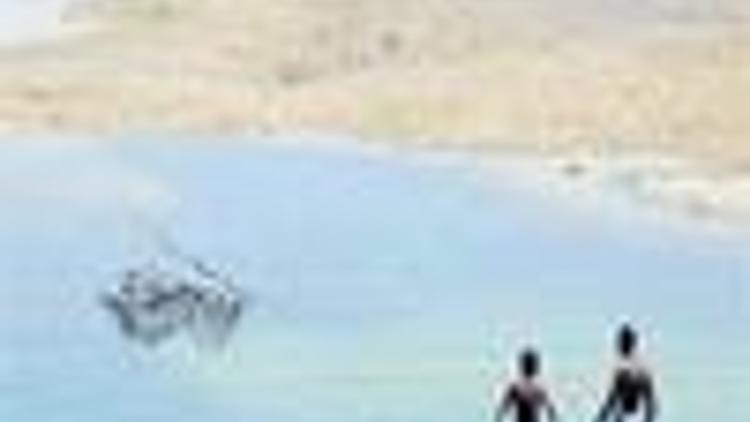Turkey responds to thirsting Iraq
Güncelleme Tarihi:

ANKARA - Turkey will release more water from its dams along the Euphrates in order to help its neighbor Iraq, which is facing drought. An Iraqi delegation appeals for help, drawing attention to the plight of local farmers. In response, Foreign Minister Ahmet Davutoğlu says Turkey will allow as much water as possible to flow into neighboring Iraq and Syria
Following Iraqi complaints, Turkey yesterday confirmed that it had opened dams on the Euphrates to allow more water to flow into Iraq to help the neighboring country cope with drought.
"We know the situation is worsening in Iraq due to the drought. Necessary measures are being taken to increase the quantity of water," a foreign ministry official told the Hürriyet Daily News & Economic Review.
An Iraqi delegation led by Saleh al-Mutlaq, leader of a Sunni-Arab bloc in parliament, held meetings with President Abdullah Gül and Prime Minister Recep Tayyip Erdoğan to request the release of more water from the Euphrates, the region’s largest river. According to diplomatic sources, al-Mutlaq informed Turkish leaders on the impact of the drought. "The Iraqi farmers were in a very difficult situation," he said.
Two days after the delegation’s meetings in Ankara, the issue was also discussed yesterday in Damascus between the foreign ministers of Turkey and Iraq, Ahmet Davutoğlu and Hosyhar Zebari. "We had a wet fall. Especially in the last 15 days. We’ll give as much water as possible to our Iraqi and Syrian friends," Foreign Minister Ahmet Davutoğlu told reporters..
"We understand the difficulties of the farmers in Basra. Their difficulties are our difficulties. Their future is our future. The expectations of the farmers in Iraq and Syria are equally important for us," Davutoğlu said.
For his part, Zebari said that Iraqi agriculture needed more water, adding: "Turkey has made an important decision on the water. Water flow will be provided soon. A good amount of water from Turkey’s Euphrates will meet a great amount of Iraq and Syria’s needs."
The regions’ two main water sources, the Euphrates and Tigris Rivers, start in Turkey and pass through Syria and Iraq. As downstream countries, Iraq and Syria criticize Turkey for not allowing enough water to flow into their territories. As relations between the three countries were improved in recent years, the tone of criticism softened but never fully ceased due to growing drought in the region.
50 percent increase
According to Iraqi officials, Turkey has increased the flow of water by 130 cubic meters per second, making the flow of water to Iraq 360 cubic meters, up from 230 cubic meters. Turkey gives 500 cubic meters of water to Syria upon an agreement signed between the two countries in 1987. Both Iraq and Syria want Turkey to increase that quantity to 700 cubic meters per second.
Iraq's parliament voted last week to force the government to demand a greater share of water resources from neighbors upstream of its vital rivers, Turkey, Iran and Syria, turning up the heat on long-running disputes. They agreed to block anything signed with the nations that did not include a clause granting Iraq a fairer share of water.
FOREIGN MINISTRY’S THREE-PART PLAN FOR TWO RIVERS
A memo posted on the Foreign Ministry’s official Web site indicated Turkey’s official position and proposal for an overall solution to the problem, saying: "The problems of the Euphrates and Tigris basin are not going to go away. Turkey, Syria and Iraq will always be neighbors and the two great rivers will always flow through them." Accordingly, Turkey designed a three-staged plan for the equitable use of the trans-boundary watercourses of the Euphrates-Tigris basin on the grounds that the two rivers actually formed a single basin.
The first stage aims to compile an inventory of water resources, covering the whole range of available data on the rivers and their water, including evaporation, temperature and rainfall levels. Compiling an inventory for the land resources is the second stage, to find out water requirements for each country. In the third and final stage, potential methods of irrigation would be established in the light of an analysis of water and land resources.

